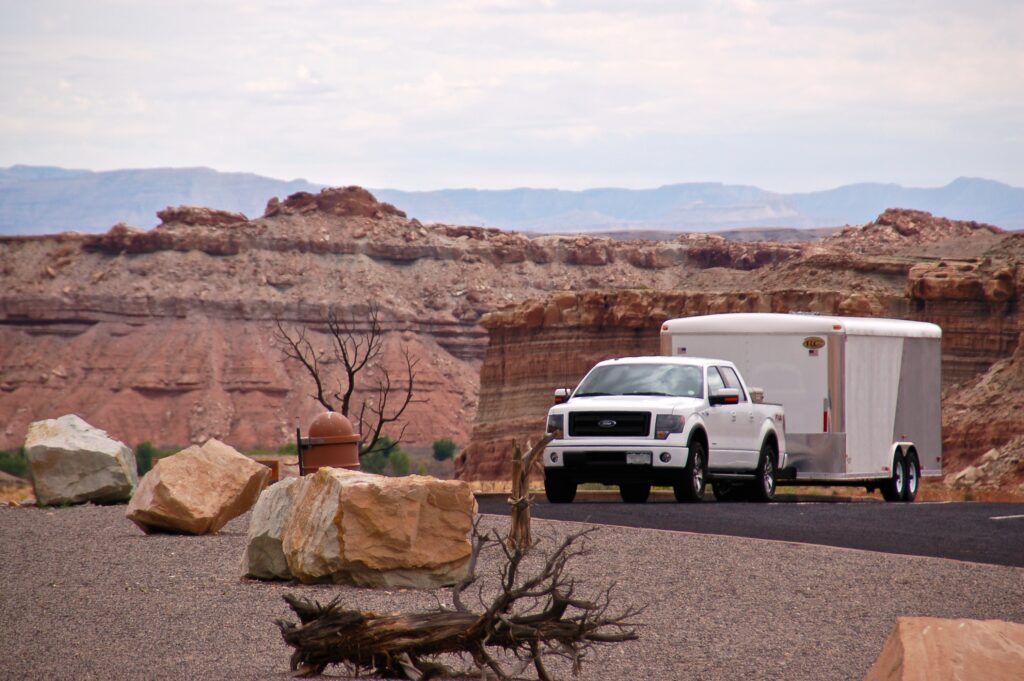
There are many classifications used to describe a tire’s ability to maintain air pressure and carry weight. One of those is load range, which is represented by a letter (B, C, D, E, etc.); this shows you the durability of the tire, how much air it can hold, and how much weight it can safely carry.
The higher the load range, the heavier loads the tire can carry. You also have to consider the speeds. Some tires are rated for a max speed of 65 MPH. If you exceed this speed, you risk blowing a tire. Then, there are load range E tires designed for long-distance travels with a good amount of cargo.
The next factor to consider is load carrying capacity, which you need to pay special attention to if you plan on hauling/towing.
Gross axle weight rating (GAWR) is another thing to consider. This is max allowable weight you can place on a single axle, which you can find on the label inside the door frame near the door latch. The total load on each axle should never exceed the GAWR, which includes your vehicle’s weight, passenger weight, cargo weight and tongue weight. Keep in mind, trailers have their own separate GAWR.
Tow Vehicle
For your tow vehicle, you need to ensure a smooth ride and good traction. Look for tires featuring a soft sidewall that flexes under normal driving conditions, with excellent traction to easily handle acceleration, turning and braking. Passenger (P) tires provide the most comfort while driving and are more fuel efficient, LT (Light Truck) tires are better for heavy towing with more tread depth, with a heavier duty design for higher inflation pressures.
Trailer
Trailer tires don’t need to have a flexible sidewall, as load range and inflation pressure are more critical. In fact, when you have sidewall flexing on trailer tires, this can cause increased trailer sway.
You may want to consider ST (Special Trailer) tires for your trailer because they have engineered designs for heavier loads and higher inflation pressures, with stiff sidewalls to reduce trailer sway.
You must consider all of these factors when towing to make sure you have a safe trip. Tires are a major factor in all this, and you should take the time to find the right ones for your towing needs. Once you do, you’ll have to inspect them regularly for air loss, irregular wear and tear, sidewall cracks, and other signs of damage.
Replacement
Trailer tires never last as long as you want them to. Realistically, you will probably have to replace them every two to three years.
Blowing a tire while driving is no picnic, but blowing a tire when you’re towing is even scarier and more frustrating. It also puts you, your passengers, and other motorists at risk. Have a plan in place in case this happens!
Contact I&I Tires
If you blow a tire, either on your truck, trailer or RV, call our mobile tire service in Smyrna GA at 404-907-1493.
